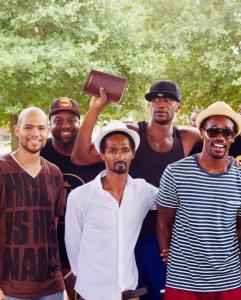“The reason it’s so important for us to learn how to recognize this division is that it is the single most potent weapon for delegitimizing the biblical perspective in the public square today,” Pearcey writes. “The two-story grid functions as a gate-keeper that defines what is to be taken seriously as genuine knowledge, and what can be dismissed as mere wish-fulfillment.”(2) Religion can play in the house so long as it stays in the upstairs closet along with all of the other fairy tales, fiction, and fables. The problem that Christianity has with this mindset is that God in Jesus Christ came from “upstairs” in heaven and came “downstairs” to the earth before returning “upstairs” to rule and reign as King of Kings over all cultures, nations, and ages. There is not one inch of all creation that is not under the rule of King Jesus according to Christian faith. Therefore, it is impossible to be both a Christian and not allow one’s faith to deeply and profoundly impact life in culture.
Keeping faith and politics separate might seem like a good way to avoid conflict and keep everyone happy, like splitting up two squabbling kids. But as Christians we cannot agree to that. If Jesus is Lord there is no such thing as separating faith and facts, private and public. You can’t say, “Well, when I go to church or read my Bible, those are just for me, and when I go into the voting booth or someone asks my opinion, I chuck my beliefs so I can be objective and neutral.” All is under Jesus’ sovereign authority for the Christian.
Misunderstandings
When Christians back away from political engagement, others are more than happy to see us go. Their idea that our faith should be excluded from the public square is only one of many objections to our involvement. I want to briefly respond to a few.
1. “Our nation was founded on freedom from religion.
Focus group participants argued again and again that Christians should stay out of politics because as one literally said, “our nation is built on freedom from religion.” As professor Wayne Grudem explains in an interview I conducted with him for this project, “Sometimes people raise the objection about separation of church and state and take it to mean we should have freedom from religion. That is, religion should be excluded from public places and public expressions and debates about legal things and moral standards.” But our real liberty is freedom of religion. Grudem continues, “I just ask people to go online and look at the First Amendment to the Constitution. It doesn’t say anything about freedom from religion. It says, ‘Congress shall make no law respecting an establishment of religion or prohibiting the free exercise thereof.’” That means people of any faith or no faith have the right to speak up wherever they wish. Other people might not like what we say. They might not agree with our views. But we do not have to apologize for our faith as the basis of the positions we advocate.
2. “Christians are majority in America.”
Many of our participants felt Christians have overwhelming political power based on our sheer numbers. But as I’ve said before based upon credible research, “There are more left-handed people, more Texans, and more pet cats than evangelicals in America.” Back in the day when Christendom encouraged people to profess a faith they neither deeply possessed nor regularly practiced, it was tough to know how many people were true Christians. When Christendom was hitting home runs and winning games, faith had a lot of fair weather fans. With Christendom dead and authentic Christianity fading in popularity, new numbers reveal there are shockingly few hardcore fans of Team Jesus. The most reliable data doesn’t come from asking if someone is Christian but inquiring how faith impacts their actions. It is debatable whether a majority in America or Great Britain ever practiced true Christian faith. Christendom created a cultural haze that made it nearly impossible to see who was or was not a devoted Christian, but we know more accurately that today Christians are a small minority.
In my book A Call to Resurgence I note that common statistics estimate that evangelicals represent anywhere between 40 to 70 percent of the country’s total population, or approximately 130 million people. This is greatly inflated as there are not that many people practicing Biblical Christianity despite what they profess. More extensive research cited by John Dickerson in his book The Great Evangelical Recession indicates that the actual range is between 7 and 8.9 percent, somewhere between 22 and 28 million people. Moreover, nearly all studies indicate that younger people are less likely to be practicing evangelical Christians. According to a 2012 Gallup poll, about 6.4 percent of the US population ages eighteen to twenty-nine identify themselves as lesbian, gay, bisexual, or transgendered, which means in all likelihood there are as many young people with alternative sexual lifestyles as there are active young evangelicals in the United States.












